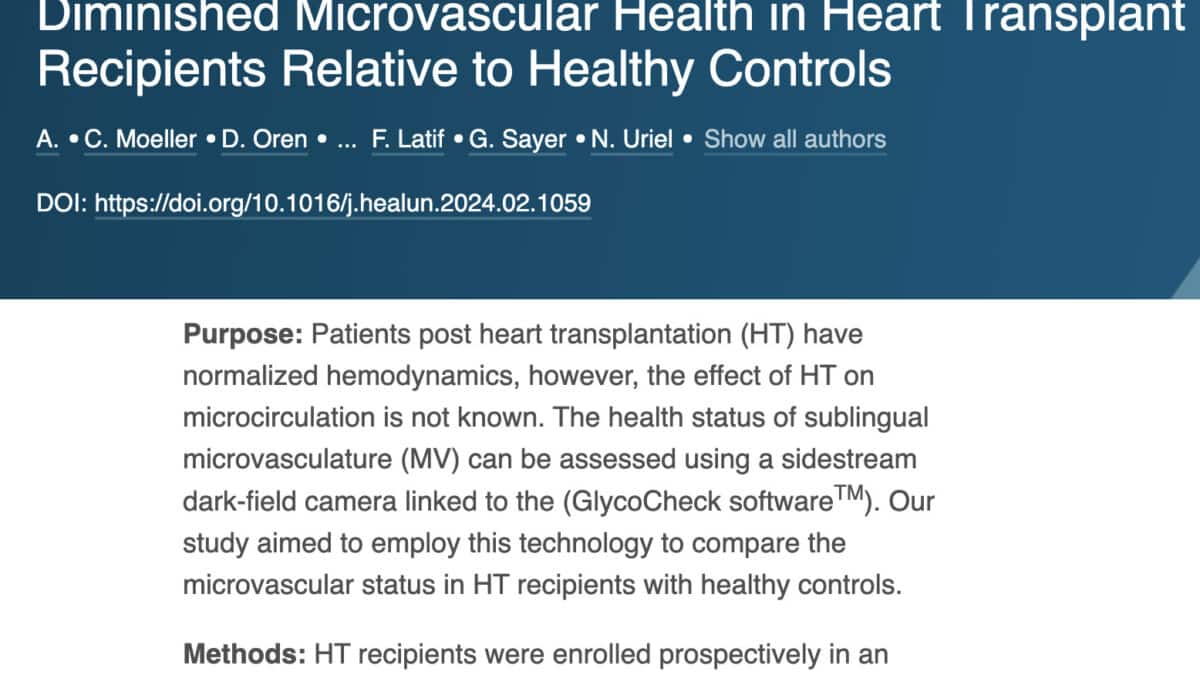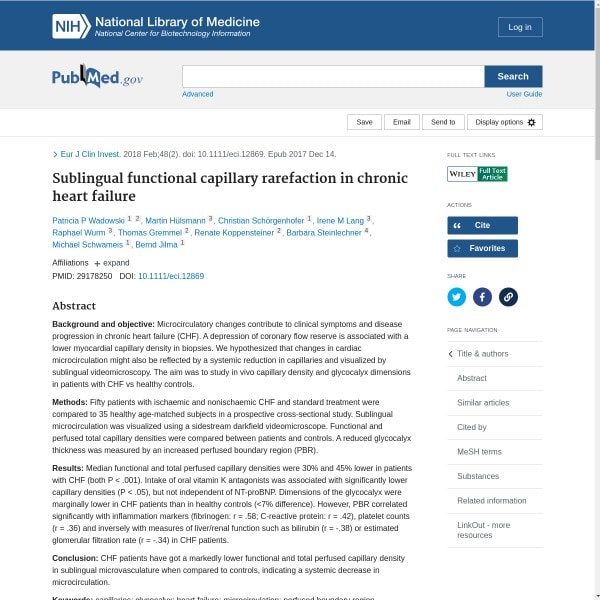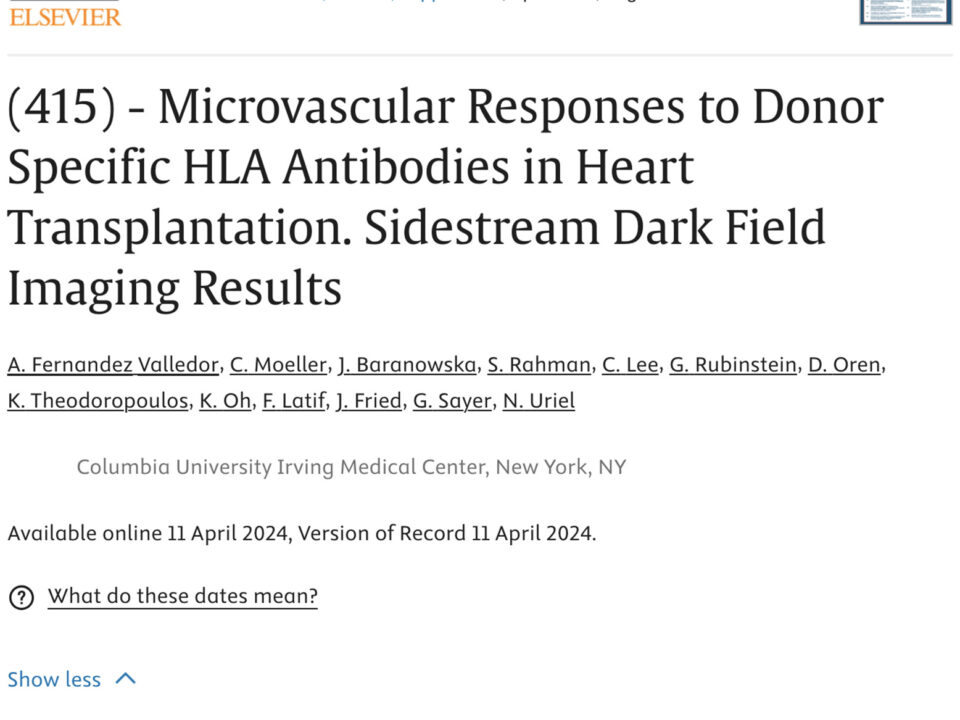Purpose: Patients post heart transplantation (HT) have normalized hemodynamics, however, the effect of HT on microcirculation is not known. The health status of sublingual microvasculature (MV) can be assessed using a sidestream dark-field camera linked to the (GlycoCheck softwareTM). Our study aimed to employ this technology to compare the microvascular status in HT recipients with healthy controls.
Methods: HT recipients were enrolled prospectively in an outpatient setting between June 2023 - September 2023. Healthy individuals aged ≥ 18 years with no known cardiovascular disease were recruited. The GlycoCheck system monitors real-time red blood cell (RBC) dynamics within capillaries, and computes five functional parameters: (a) Perfused boundary region (PBR) - elevated PBR values suggest impaired microcirculation due to damaged glycocalyx; (b) Capillary density (1/mm²); (c) Blood flow and density within the observed domain (103 μm³/s/mm²); (d) Capillary recruitment potential; and (e) a global microvascular HealthScore (MVHS) - where higher values indicate healthier microvasculature.
Results: 90 HT recipients and 23 controls were included. The median age was 54 years (IQR 35-62), 40% were females and 49% identified as white. Within the HT cohort, the median duration post-transplant to MV assessment was 2 years (IQR 1-10). Microvascular health evaluations unveiled that HT patients had reduced capillary density and capillary blood flow compared to controls (p < 0.001). Importantly, HT recipients demonstrated a substantially inferior median MVHS (1.71 vs 5.1; p <0.001) and elevated PBR values (2.41 vs. 2.26; p = 0.02) compared to controls, indicating a damaged glycocalyx and worse microvascular health.
Conclusion: Heart transplant recipients had significant microvasculature abnormalities and overall worse microvascular health compared to healthy controls.




